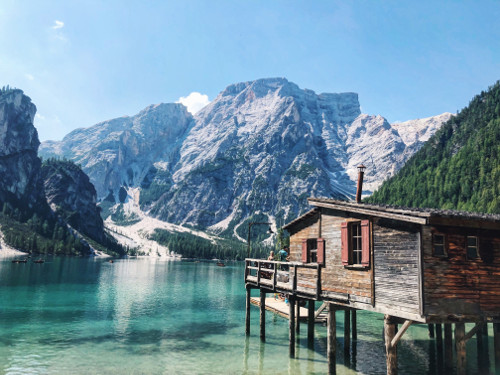GET IN TOUCH
Please contact us for more information. Our email is monitored seven days a week and we will get back to you shortly.

The family vacation home is a place where some of us have our fondest memories. A vacation home can be a special place where people look forward to their next visit all year long. Vacation home owners often find it important to handle the property appropriately when they pass away. They might want to ensure that the family maintains it for generations to come. Or, some vacation home owners want their family to benefit from its sale. Vacation home owners often ask, ‘what’s the best way to pass along my vacation home to the family?’. Unfortunately, there’s no simple answer, and it will vary for each person.
In choosing how your vacation home will survive you, there are various options available. To keep the vacation home within your family, you could:
There isn’t one option that is definitively better than the other – each option suits each family and situation differently. For example, gifting the property now could be a better option if you, as the property owner, are reaching an age where you won’t be able to visit the vacation home as much as you used to. If your children are spending considerably more time at the home than you are, it could make more sense to gift them the property now rather than waiting to name the house to them in your will.

Before deciding how you want to transfer your property, it’s important to consider the tax implications of each option. The recipient of the property will likely need to pay capital gains taxes, depending on the circumstances. This means that the amount that the property has gained in value since you purchased/received the property will be subject to capital gains tax. If you choose to gift your vacation home to your children, they should expect to pay capital gains tax.
For example, let’s say you purchased a family cottage near Pemberton, BC for $100,000. The property’s value has risen since you purchased it and is now estimated to be worth $400,000. If you gift or transfer this cottage to a family member, capital gains tax applies to approximately half of the gain. This would be half of the $300,000 gain, so $150,000 is taxable. However, the recipient of the cottage still realizes a net gain through the sale of the estate property.
However, the recipient might not have the immediate funds to pay the tax without needing to sell the cottage. Property owners should involve the potential recipients to ensure they are prepared and fully understand the implications of the property transfer, as a way to avoid this.
While the capital gains tax can be problematic for some people, there are ways around it. If the capital gains tax is going to be more than the recipient of the property can afford, a common solution is for the original property owner to leave money in a trust fund for the use of paying any taxes arising from the vacation home transfer. This way, the recipient of the gift isn’t left burdened by the taxes and fees payable in receiving the gift, and is able to maintain the property according the the deceased’s wishes. Additionally, the entire property could be held in trust, which would defer the capital gains tax until the recipient eventually sells or transfers the property. For more information on strategies for minimizing the tax burden, read CIBC’s article on estate planning for your vacation property.
If you’re unsure how you want to plan for your vacation home to survive you, contact an experienced estate lawyer today. We will help you to understand the implications of the options available to you in keeping the vacation home within your family.
Have a question about this topic or a different legal topic? Contact us for a free consultation. Reach us via phone at 250-888-0002, or via email at info@leaguelaw.com.